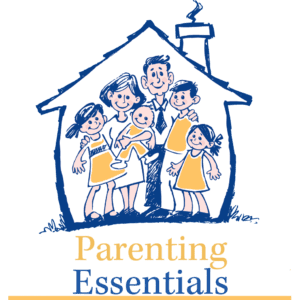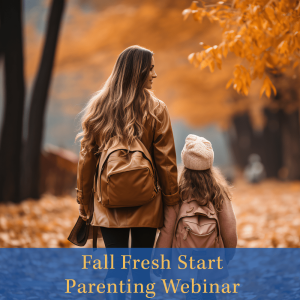From Yelling To Loving In 5 Easy Lessons
Question:
Nicholeen, I hate to admit this, but I yell at my family way too much. Okay, I guess any yelling is too much. I’m not the only one who yells though. My whole family yells at each other. I want the spirit of love in our home, but it seems like the moment after I feel that comfortable feeling at home, it is gone again because someone is in someone else’s business, or someone doesn’t want to obey. What can I do? Is there any help for a whole family of yellers?
Answer
Don’t feel like you have failed as a parent just because you have developed a habit of yelling. And, don’t feel alone either. Parents tell me about this kind of family dynamic all the time.
Why do people yell? Yelling is a trained response to frustration. It is often used to get another person’s attention or to demonstrate dominance in an effort to control others. Of course there are other more rare reasons why people yell, but these are the most usual reasons for using forceful voice tones with aggressive intentions; yelling.
The good news about yelling is that since it is a trained behavior, it can be stopped or untrained. Since each person who has a habit of yelling has developed their habit differently and over a varying length of time, the amount of time it will take to govern the behavior may differ slightly from person to person. Here are five easy lessons that will help you and your family transition from yelling to loving.
I say “easy lessons” meaning that the concepts aren’t complicated, but learning self-government can seem difficult at times; especially when you are conquering that moment of explosion that you have a habit of giving in to.
5 Easy Loving Lessons
-
Wait to discuss it until everyone is calm. When someone is out of control or emotional about an issue then discussion shouldn’t happen yet. If the family establishes a rule that no issues will be discussed until everyone chooses to be calm, then the family is free to prepare for discussion instead of reacting emotionally by yelling or other manipulative behaviors. When someone yells at me I always say, “It seems to me that you want to tell me something. I would love to know what that is. We need to choose be calm first, then we can talk about it.”
Check yourself for calmness too before discussing an emotionally charged situation. When I notice that someone is not calm or that people are fighting with each other, I am immediately triggered to ask myself a question. “Am I calm?” I have trained myself to ask this question instead of reacting to the situation. This helps me analyze me the situation better before correcting the problem. Of these easy lessons, this is possibly the hardest. Stopping a habit of reacting and choosing a proactive form of questioning takes deliberate self-government.
-
Plan what to say. I have had situations before when I got myself calm and then once I opened my mouth I vented all my frustrations anyway. After having this happen a few times, I realized that I needed to encourage myself to remain calm by deciding the words I would use before talking. I even put those words on cue cards for a while.
The best kinds of words to use are words or descriptions that your family already knows and understands, non-emotional words, and descriptions. So, when something goes wrong, or someone misbehaves, I describe what went wrong, and what should have happened instead of sharing my feelings about the situation. Describing keeps my brain clear and focused on facts instead of emotions. Training myself to interact deliberately like this frees me from feeling the need to become emotional.
-
Send the love to their heart. When a person changes their behavior it is often because they have experienced a change of heart. When a heart is communicating coldness and disconnection, this is the best time to reach out with our hearts to theirs. I do this by looking into the person’s eyes with understanding and compassion as I talk to them or correct them. No matter what words are coming out of my mouth I focus on the feeling of love that I am sending from my heart. Sending this love is a gift to the other person, so it is important it is not given with selfish intentions.
-
Have low anxiety corrections, discussions, and skills training. We all have some anxiety which surfaces differently for each of us. The leading cause for family members choosing to go out of control is anxiety; some also call this frustration. Teaching children skills, discussing problems, or correcting situations should never feel new to children. They should know exactly how their parents will correct them before the correction happens. This teaching is done at a time when a problem hasn’t occurred. All positive and negative consequences are completely understood and appropriate skills, such as how to disagree appropriately, are pre-taught. Also, after a calm correction is done, a practice role play is done correctly of the situation so that it will not likely be repeated again.
-
I believe in “do overs.” This means that I acknowledge that some days will not be perfect. Sometimes I could fall back into an old habit or yelling again. I will try not to repeat the negative behavior, but if I do I will practice the situation again; right in front of the family. Doing a situation over again is a great example of self-government to the children too. Then when they practice their situation the right way too, it doesn’t seem as strange to them either.
Feel The Love
You and your family of yellers are not a lost cause. You can feel love and unity again soon. For love to be felt, each person must think more of who God meant them to be, than what they want to be seen as by others. We are meant to be calm and happy. When we calmly fulfill our missions in life and magnify the roles God gave us in our families, then we are much more powerful than any loud voice could ever be. As we learn self-government skills and calmly practice and teach them, we will become the powerful people we were meant to be, and our homes will fulfill their purposes too.
Find Power of Calm by Nicholeen Peck and other Teaching Self-Government materials here!





